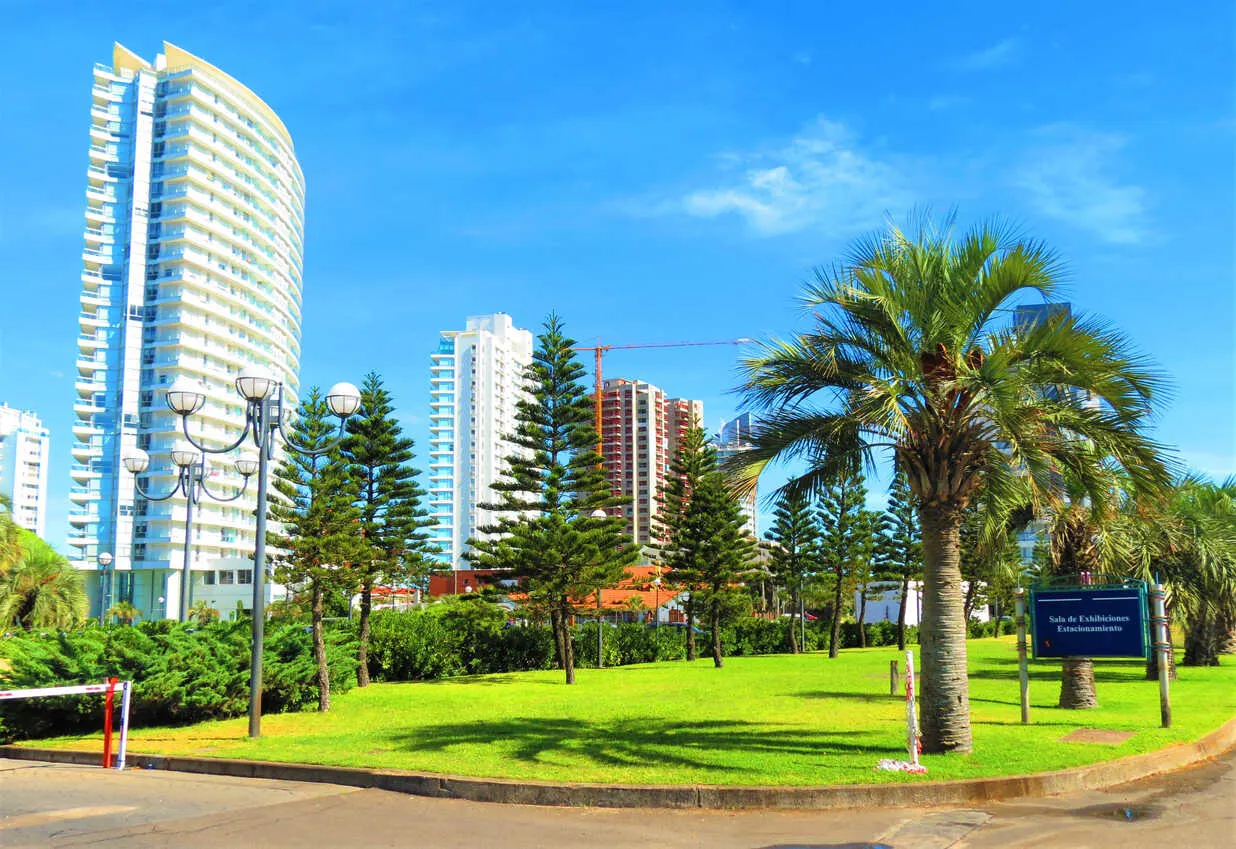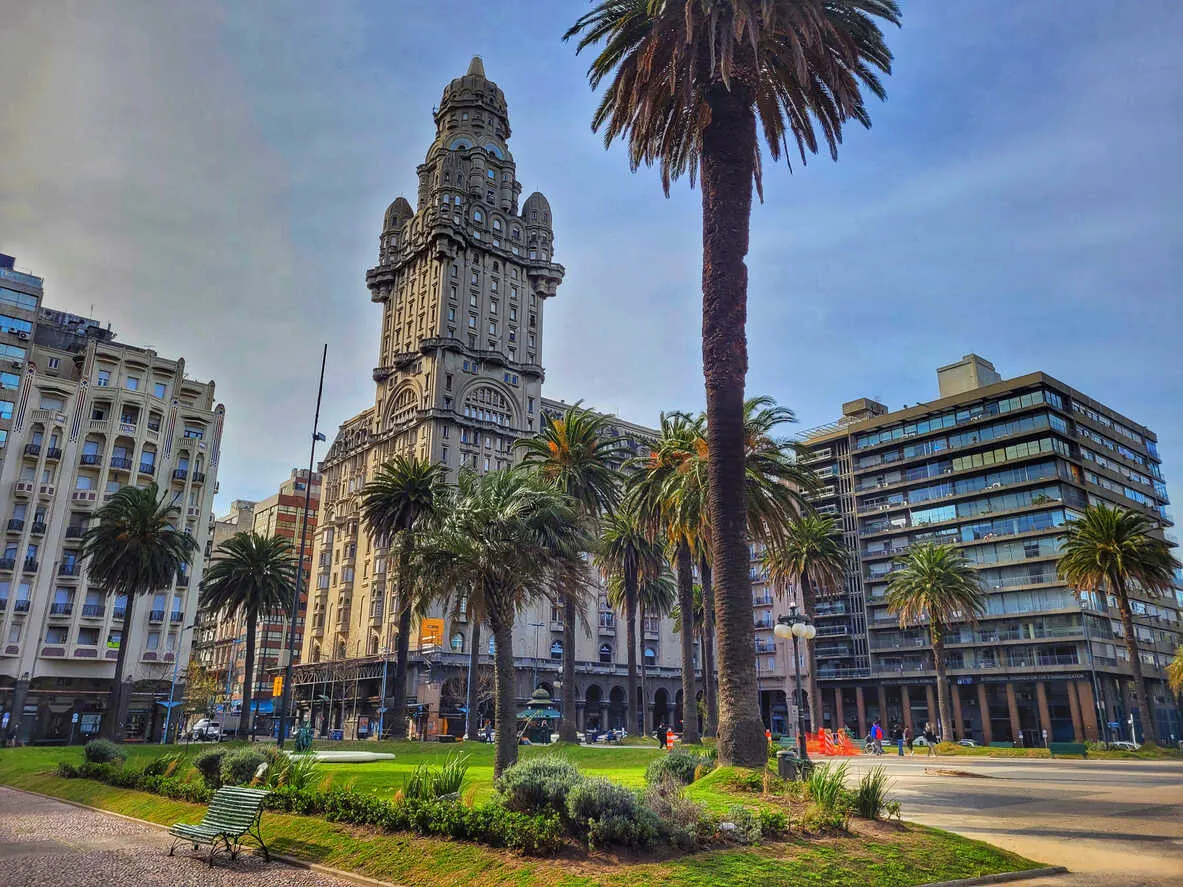5 Reasons Why Uruguay is the Perfect Post-Election Haven for Expats
6 min readIf things get chaotic after the election, will you make an escape? And if so, where will you go?
If you’re considering a move, let me introduce you to Uruguay—a country with postcard-perfect beaches and a charming, rural interior filled with ranches and farms. Here, you’ll find golf, tennis, and a wide range of dining and entertainment options to enjoy.
I moved from the U.S. to Uruguay back in 2006, drawn by the chance to live a simpler life with more free time. Today, most expats from North America come to Uruguay for its political, social, and economic stability. It also boasts some of the best infrastructure in Latin America and is among the safest countries in the region.
And here’s the best part: Uruguay’s residency process means you can start this new life as soon as you’re ready.
So, if you’re exploring post-election escape options, here are five reasons why Uruguay might just be the place for you.
In all sorts of beautiful, welcoming, culturally rich, saner places around the world, you can live well from $2,000 a month (all in, housing included). Sign up for our free daily IL Postcards e-letter and we’ll immediately send you a free report on the WORLD’S # 1 RETIREMENT HAVEN— plus 9 more spots you should have on your radar. Each day, you’ll earn about the best places to move to, retire, travel, buy real estate, and enjoy a good life for less, overseas.
By submitting your email address, you will receive a free subscription to IL Postcards and special offers from International Living and our affiliates. You can unsubscribe at any time, and we encourage you to read more about our Privacy Policy.

Find stability and simplicity in Uruguay—perfect for a fresh start overseas.|©iStock/Natalia SO
Uruguayans are known for being relaxed and easygoing, but when it comes to something as important as an election, they take it very seriously.
Consider the last presidential election in 2019. The race was close, and some areas couldn’t determine the winner on election night. Officials returned the next day to complete and verify the tally, with military guards ensuring the process stayed secure through the night.
Watching this on the news left a lasting impression. This level of commitment to election integrity wasn’t surprising to me when Uruguay received a perfect “electoral process” score in the Democracy Index published by The Economist. Here, your vote matters, and that security is just one part of the calm, stable life you’ll find in Uruguay.
2. Social Stability Through Opportunity, Dignity, and Support
When people feel their vote counts, a sense of inclusion takes root, creating political stability. But Uruguay doesn’t stop there—it goes further with social policies that offer opportunity, promote dignity, and provide support for those in need.
Consider Uruguay’s education system. Any resident who can pass the entrance exams can attend the state university at a minimal cost, even for postgraduate studies.
Imagine being able to pursue your dream career without incurring student debt. A teenage girl from the U.S. who moved to Uruguay with her family did just that. She learned Spanish, attended the state university, went to medical school, and is now a doctor—all without the burden of loans.
Uruguay also boosts job opportunities through trade expansion, attracting job-creating businesses, and funding development projects. Worker benefits are generous and include paid holidays, 20 consecutive days of vacation each year, overtime pay, a comprehensive healthcare plan with no deductible, and a state-managed retirement pension. It’s a place where workers are valued.
Here, you’ll find both private and public healthcare options. Public hospitals may be more basic, with longer wait times, but they ensure all residents, regardless of income, receive healthcare access.
In addition, Uruguay offers a range of housing and food programs to help those in need. It’s a society that values dignity and inclusion, creating an environment where people—and expats—can thrive.
3. Economic Stability—Independent and Resilient
Every economy faces ups and downs, and Uruguay is no exception. But Uruguay’s economy doesn’t necessarily rise and fall with those of North America, Europe, or even its larger neighbor, Argentina.
For example, during the Great Depression of the 1930s, while economies in the U.S., U.K., and Europe suffered deeply, Uruguay’s economy remained steady.
While I wasn’t around back then, I was in Uruguay during the 2007-2009 Financial Crisis. While real estate and stock values fell in the U.S., U.K., and Europe, Uruguay’s economy told a different story. Construction was booming, real estate prices were rising, and banks remained stable. It was a unique experience.
To be clear, Uruguay isn’t immune to economic challenges. The last major crisis was in 2002, stemming from a financial collapse in Argentina. Uruguay took decisive measures to avoid default, which preserved confidence in its sovereign bonds.
To avoid similar challenges, Uruguay has since become more strategic in its trade and economic policy. And it’s paid off. In June 2024, Argentina’s inflation rate reached a staggering 271.5%, while Uruguay’s was just 4.96%.
Today, Uruguay’s economy is growing, and with agriculture, tourism, and construction doing well, there’s a bright future here—one that’s welcoming to expats.

Discover why Uruguay’s relaxed lifestyle, strong economy, and easy residency make it a top escape choice.|©iStock/FredLee Na Estrada
When it comes to quality of life, reliable infrastructure is essential. In Uruguay, you’ll find dependable utilities. The national government provides drinking water, sewage treatment, power, and broadband internet—and they do an impressive job.
Uruguay’s state-operated water company, OSE, is one of the few in Latin America to provide clean water to its entire population, with continuous investments in water and sanitation.
Uruguay’s electric grid, managed by UTE, produces 97% of its power from renewable resources. While occasional outages happen, UTE responds quickly to restore power. It’s service you can rely on.
Three years ago, my building lost power on a Saturday. When I reported it, UTE quickly sent a crew. They worked through the night and restored power by Sunday morning. That level of dedication is rare and admirable.
ANTEL, Uruguay’s National Telecommunication Administration, provides reliable, high-speed internet. My basic fiber-optic plan costs $40 per month, offers 360 Mbps download speeds, and includes a phone line with unlimited calls. And if the router stops working, they’ll replace it free of charge.
In Montevideo, where I live, trash is collected every night by local government—a simple but important service that adds to the comfort of daily life here.
Becoming a legal resident in Uruguay is refreshingly straightforward. Here’s how it works:
-
Enter as a tourist.
-
Apply for residency at the immigration office.
-
Start living in Uruguay as a “resident in process” while your application is finalized (usually within six to eight months).
As soon as you’re ready to leave your home country and gather the necessary documents, you can move to Uruguay and start your new life.
To qualify for residency, you need a recurring monthly income sufficient to support yourself in Uruguay. Many expats consider $1,500 per month the minimum for a single person.
When I was ready to apply, I hired a firm to handle the process. They helped me obtain the necessary documents, took care of the filings, and set up my appointments. Their team even accompanied me as translators. It was an easy, streamlined experience.
With its stability, ease of residency, and high quality of life, Uruguay just might be the ideal post-election escape. Imagine yourself enjoying Uruguay’s tranquil beaches or thriving in a secure environment that values stability and opportunity. Could this be your next home?
In all sorts of beautiful, welcoming, culturally rich, saner places around the world, you can live well from $2,000 a month (all in, housing included). Sign up for our free daily IL Postcards e-letter and we’ll immediately send you a free report on the WORLD’S # 1 RETIREMENT HAVEN— plus 9 more spots you should have on your radar. Each day, you’ll earn about the best places to move to, retire, travel, buy real estate, and enjoy a good life for less, overseas.
By submitting your email address, you will receive a free subscription to IL Postcards and special offers from International Living and our affiliates. You can unsubscribe at any time, and we encourage you to read more about our Privacy Policy.



